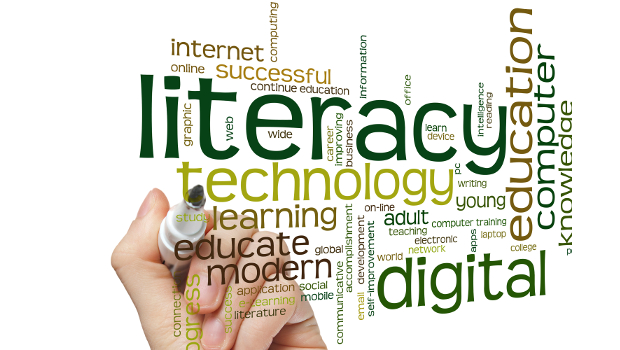
Quarter of Irish people feel excluded from digital society
One in four Irish people feel excluded from an increasingly digital society, according to a recently published report from Accenture.
The report, which explored the scale of digital exclusion in Ireland, found that socioeconomic conditions have fostered a two-speed digital economy that puts swathes of the population at risk of being leaving behind.
Entitled ‘Bridging the Gap: Ireland’s Digital Divide’, the report highlighted how digital skills vary for different groups of the population. It found that 42% of Irish people describe themselves as ‘average’ or below for digital skills, while 25% rate their skills as ‘excellent’.
Digital disengagement
While there has been a shift to online services since the outbreak of the COVID-19 pandemic, the study found digital disengagement is widespread across Irish society. One in five Irish people do not use online banking, while nearly 20% do not feel confident conducting basic financial transactions online. Further, 80% of people who self-identify as having ‘average’ or ‘below average’ digital skills are uncomfortable with online financial transactions.
Irrespective of the rise in remote working in recent months, almost a third of respondents said felt they were ‘not at all confident’ installing apps or software, while 49% said they were uncomfortable creating and editing documents.
Indeed, Accenture’s report found that large portions of the Irish population are ‘digitally disenfranchised’, where a lack of direct exposure to technology, or the educational opportunities to understand it, exacerbate existing social inequalities and further isolate already marginalised communities.
The study noted that this is inextricably linked to social class is education, with 55% of those who had attained Leaving Cert level education or below saying they have ‘average’ or ‘below average’ digital skills.
Generational divide
A generational split was also apparent, with older citizens inevitably falling on the wrong side of the digital divide. Most ‘digital natives’ – individuals who have grown up with the internet and digital devices – describe their digital skills as average (over one in five of those aged 18-34). Over 45s tend to have the lowest confidence in their digital literacy; 44% of those aged between 45 and 54 years rated their digital skills as ‘below average’, moving to 60% with those aged between 55 and 64 years, and up to 70% with those aged over 65.
The report suggested that the ongoing pandemic could further widen the digital divide. Consumer behaviours have changed in recent months, with more consumers shopping online. While many organisations are focusing on ecommerce, the report shows that 26% of Irish people never shop online and nearly a third of those who do not are under 55 years of age.
A widening divide
Digital education and training are needed to meet both the ICT skills shortage and to enable people in jobs disrupted by automation to find new work. However, the research finds that a sizeable cohort of society disproportionately impacted by automation are less likely to be confident in their ability to engage in lifelong learning.
Around one-sixth of the Irish population who have ‘average’ or ‘below average’ digital skills say they do not feel the need to improve them. For those with poor digital skills, this figure rises 38%, while 34% say they are not confident enough to believe they will be able to learn.
Meanwhile, over one in five people surveyed are not interested in using the internet. This cohort is mainly comprised of older men who have not completed second level education and identify as having ‘average’ or poor digital skills. A third of those with lower digital skills cite a lack of available resources or courses in their area as a barrier to up-skilling, while 29% say they ‘don’t know where to learn’ and 30% say they ‘don’t know how to go about it’.
Fake news
The report also highlighted a correlation between low digital skills and a susceptibility towards online scams and ‘fake news’; 70% of those who have attained a maximum of second level education say they are not confident in their ability to identify fake or unreliable information. Those over the age of 55 with lower level social skills are also less confident identifying false information online and more likely to fall prey to ‘fake news’ or internet scams.
“The ‘digital divide’ in Ireland is best described as the gap between the ‘haves and have nots’,” said Alastair Blair, country managing director at Accenture in Ireland. “Our report points to a two-speed digital economy that risks leaving large groups of people behind. Now, more than ever, we need to come to come together to tackle this divide and maximise our potential by empowering Irish citizens with the skills they need to thrive in a digital society. This will contribute to building our skills base which will not only support our nation’s economic recovery, but will further position Ireland at the leading edge of those nations that are adopting and benefitting from the rapidly accelerating digitisation of the world economy.”
“The digital divide in Ireland is real,” added Vicky Godolphin, a managing director and the Digital Divide sponsor at Accenture in Ireland. “Our report highlights the gap between those who have the confidence, skills and ability to engage with digital services, and those who don’t. If all the stakeholders come together to tackle the divide, digital skills could become a real equaliser in Ireland, supporting efforts to tackle societal challenges such as loneliness and inequality, and helping create more opportunities for many more of our citizens.”
TechCentral Reporters







Subscribers 0
Fans 0
Followers 0
Followers